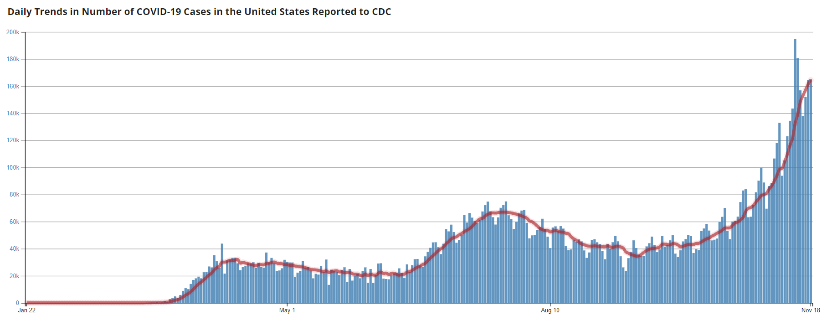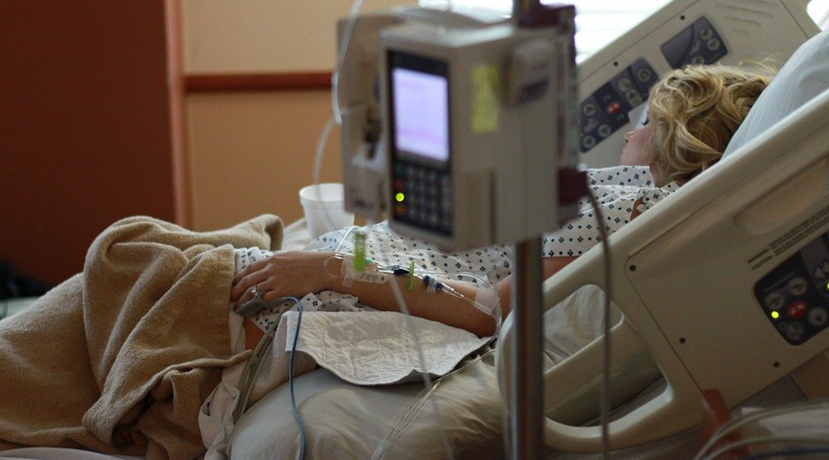“As the pandemic drags on, following COVID-19 prevention guidelines can feel like more and more of a challenge.” — Jay Maddock, Professor of Public Health
Tired of the pandemic? Tired of social distancing, of wearing a mask, of avoiding crowds? Who’s not? Get over it. The Covid-19 pandemic has come roaring back in the United States and it’s killing people.
Not just with disease the virus causes, but the unavailability of medical care for other patients, the ones suffering from heart disease, cancer, stroke, respiratory disease, Alzheimer’s, kidney disease, automobile accidents and all the other causes that were leading killers until Covid-19 became the leading cause of death in the United States.
It’s also making our process plants less safe.
Covid-19’s Impact on Process Safety
Process safety is about fires, explosions, and toxic releases. How does SARS-CoV-2, the coronavirus that causes Covid-19, have any impact on fires, explosions, and toxic releases?
One of the key elements of any process safety management program is revalidating each process hazard analysis, diligently seeing that recommendations are resolved, and actively searching for previously unrecognized hazards. But those efforts have been postponed as personnel who would normally participate in them are drafted to backfill for those that have tested positive for Covid-19 or who have been quarantined because of contact.
Just as bad, the safety professionals in process organizations are now finding themselves engaged full-time in dealing with Covid-19. Following up on a process safety issue just doesn’t seem as important. When you turn onto railroad tracks and get stuck there while a freight train is bearing down on you, it’s hard to worry about whether you signaled your turn or not.
The Third Wave is the Worst Yet
By now, you’ve seen the graph. As a nation, we began taking the Covid-19 pandemic seriously in the middle of March and cases peaked a couple of weeks later, in early April. After that, cases declined and we relaxed.

Then, in mid-June, we got it in our heads that “enough is enough” and we went about our summer as though the pandemic was over. Independence Day was especially irresponsible and, sure enough, we reached a new peak a couple of weeks later. The second peak doubled the first peak. But it got our attention and cases began to fall off. So we relaxed.
Now cases are climbing again. We have already doubled the second peak, and there is no new peak in sight. This third wave already dwarfs the previous two and we have no idea when or how high it will peak. We’re entering the holiday season, though, and too many people are going to feel entitled to gather in large groups without masks. Covid fatigue?
Don’t Kill Anybody
If taking precautions against the pandemic were simply a personal choice, that would be one thing. In the U.S., where we place a high value on individual liberty, we could sympathize with a person’s choice to ignore the pandemic, even if we didn’t support it. But it is not simply a personal choice. When we ignore the pandemic, we become agents of its spread, even when we never experience symptoms. We become a drain on finite medical resources already stretched to the breaking point. And in our plants, we are not available to improve or maintain process safety, or just as bad, we render others unavailable to improve or maintain process safety.
For months, we have been encouraging each other to “stay safe.” That’s the wrong message, because it reinforces the idea that tackling this pandemic is about the personal choices we make for ourselves. Instead, we should be encouraging each other to “don’t kill anybody,” reminding people that the personal choices that they make are not for themselves, but for those around them.
Everyone is at Risk
In the past couple of weeks, we’ve had several process safety reviews cancelled. Not because of a renewed commitment to not meet in person, although that is certainly happening. No, almost everyone has become adept at videoconferencing and meeting remotely. Instead, it’s because increasingly, key people aren’t available to participate in the review, remotely or otherwise. Why? Because they’re out with Covid-19, or they are covering for someone who’s out with Covid-19, or they’re dealing with Covid-19.
So, process safety suffers.
Allowing this pandemic to spread unchecked puts everyone at risk, even those who are never exposed to virus at all. When someone complains that they are suffering from Covid fatigue, that they are just so tired of wearing a mask and social distancing, don’t encourage them. Right now, it’s like saying they are tired of no-smoking signs. They may be, but it doesn’t matter.
Speak Out
In the words of the CDC, “Wear a mask, wash your hands, and stay 6 feet from others.” Just as importantly, expect others to do that. If you saw someone lighting up a cigarette next to a flammable storage tank, you would tell them to put it out. Clearly, unambiguously, and without hesitation. Is their smoking certain to cause a vapor cloud explosion? Not at all. But you would still tell them. Is smoking a personal choice? It is. Your intervention wouldn’t be about their personal choice, though, but about the impact their personal choice has on the safety of others. Their freedom to go without masks, to gather in crowds, ends when it imposes on the liberty of others.
Remember that actions speak louder than words. Certainly, it is important to speak up when we see behaviors that threaten the safety of us all. It is even more important, though, to model the behavior that we need to see from everyone. Wear your mask. Wash your hands. And stay 6 feet away from others.
Sure, have a safe and happy Thanksgiving. But mostly, don’t kill anybody.

I heard Dennis Prager say on his radio show that the average age of those who have died from Covid is 83 years old. I don’t have any way to fact-check this information, but have confidence in the integrity of Prager and even donate money to his effort to provide a conservative voice to college age youth via Prayer-U (short for University). If the demographic information is correct, what does this say to you as a safety professional about the risks of Covid and the appropriate response / safety strategy for the pandemic? If a fatal outcome for young people is very rare, and the statistical probability of fatality for healthy adults in the workforce is within what most of us would consider a reasonable risk tolerance for a society, shouldn’t we shape our behaviors in line with this? Personally, I have a risk matrix in my mind where the risk to people 30 and below is very low “green”, the risk to working adults is a mild yellow, and the risk to seniors is a red. I believe this changes the behavioral requirements. There was a time when Covid was a black box and we needed to treat it like ebola. Now, we have enough data to design risk mitigation strategies according to this information.